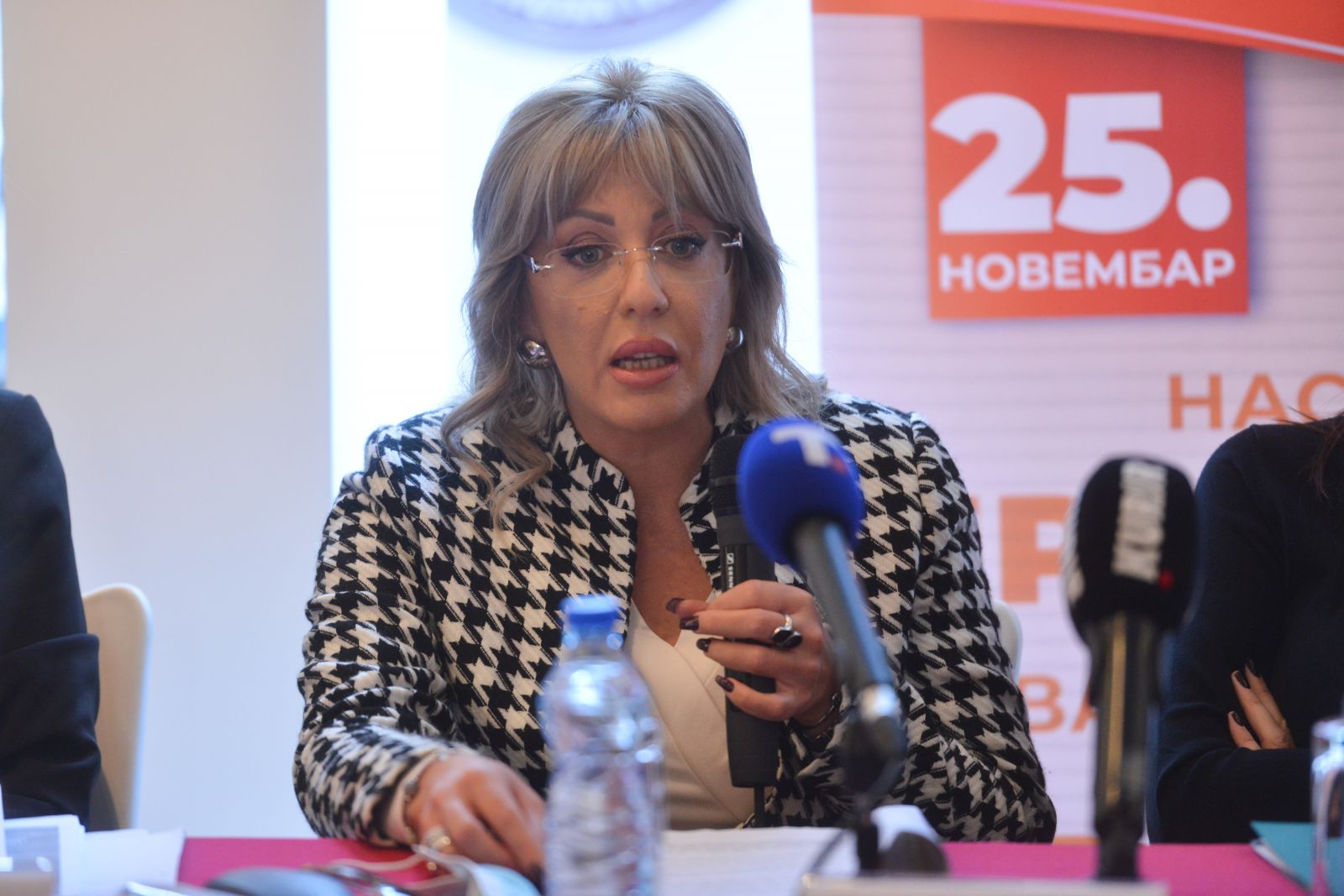
This year, more women have sought shelter in the Safe House in Belgrade compared to the previous year, as noted today at the panel ‘Effects of the pandemic on violence against women in Serbia’, organised on the occasion of the International Day for the Elimination of Violence Against Women.
Minister of European Integration Jadranka Joksimović has said that, even before the pandemic, Serbia has made significant progress in aligning with the highest international and global actions and documents regarding the fight against gender-based violence.
She has added that, in 2020 and 2021, which were difficult years for the entire humanity, Serbia never ceased to improve the legislative framework in that area.
“Last year, we started preparing important documents, which resulted in the fact that, in May this year, we adopted the Law on Gender Equality, as a comprehensive umbrella law, as well as the Amendments to the Law on Anti-discrimination”, said Joksimović.
She has noted that Serbia also developed the Strategy for the Prevention of Violence for the period 2021–2030 and an action document that will define steps towards the implementation of laws, adding that the National Strategy for Gender Equality for the period 2021–2030 was adopted in mid-October.
“On top of all that, one of the crucial steps has also been to provide appropriate financial resources not only from the republic fund, but also by bringing the subject down to the level of local self-government, as it is important that every local self-government has a working body to deal with these issues and that we withdraw considerable funds that we as an EU acceding country have for numerous projects primarily in the area of economic empowerment of women”, said Joksimović.
She has added that it has been successfully implemented in the previous years and that, this year, there is the EU PRO Plus programme which will provide EUR 40 million for the overall local economic development, where significant funds will be aimed at encouraging women entrepreneurship.
Minister of Environmental Protection and the president of the Gender Equality Council of the City of Belgrade, Irena Vujović, has said that progress has been made but that there is still much to do to solve the problem of violence against women.
“We are trying to work on resolving this problem throughout the year. We advocate zero tolerance for violence”, said Vujović at the panel.
She has noted that progress has been made in terms of economic empowerment of women victims of violence. “Since 2015, when the Gender Equality Council was formed, we have achieved results. We have established cooperation with socially responsible companies regarding economic empowerment of women”, said Vujović.
She has recalled that, in 2017, the City of Belgrade signed the European Charter for Equality of Women and Men in Local Life, adding that most of Belgrade municipalities have formed local councils for gender equality.
Director of the Institute of Public Health of Serbia ‘Dr Milan Jovanović Batut’, Verica Jovanović, has said that, in 2020, there were no reports suggesting increased violence.
“These records are probably not one hundred percent appropriate, but we cannot say that the numbers are growing, if they are not. According to the available records, coming from health institutions, we had 3,282 cases of violence against women in 2020”, said Jovanović.
She has added that 53 % of the cases were women who came to general practitioners with injuries suggesting violence, 6 % were reported by gynaecologists and women’s health care services, 30 % of cases were registered in emergency rooms, and the rest in other institutions.
According to her, at the initiative of the Coordination Body for Gender Equality of the Republic of Serbia, a study has been conducted suggesting that the number of cases reported in March, April and May of 2020 was smaller than in the same period in 2019.
Nataša Stanisavljević, the Secretary for Social Welfare in Belgrade, has said that the number of reported domestic violence cases in the capital has not increased during the COVID-19 pandemic.
In that regard, she has specified that, in the first ten months of 2021, the Social Welfare Centre of the City of Belgrade recorded 3,718 new reports of violence. She has recalled that violence is a criminal offence which everyone should report, not only the victim but also members of the society who witness it.
Vesna Stanojević, the Coordinator of the Safe House in Belgrade, has said that the pandemic has not significantly affected the situation regarding domestic violence, from the aspect of the Safe House. She has noted that, in 2020, the number of calls did not rise, adding that the line was open 24/7. However, Stanojević has conveyed that 24 women were murdered in 2020, which, according to her, indicates that violence did happen but was not reported.
“As soon as we entered 2021, we knew that the situation would be far worse, as the number of reported violence and abusers soared and more women sought shelter in the Safe House than in the previous year”, said Stanojević.
The panel ‘Effects of the pandemic on violence against women in Serbia’ was organised by the Secretariat for Social Welfare of the City of Belgrade in cooperation with Association ‘Amikus’ and Adria Media Group.
Source: Tanjug







